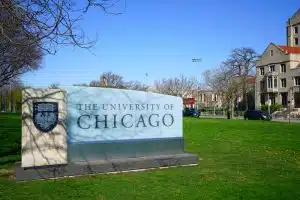Princeton Dining Hall
From the elegant architecture to the rich learning environment, Princeton University stands as a hallmark of academic excellence. One feature often overlooked, yet overwhelmingly delightful, is the impressive cuisine offered in its dining halls. This comprehensive guide will introduce you to the charming culture, fantastic food, inclusive dietary options, and sustainability efforts within Princeton’s dining halls.
Understanding Princeton’s Dining Hall Culture
The culture surrounding Princeton’s dining halls is best understood through the lens of two critical components: meal plans and dining etiquette. Together, these elements form an understanding of how Princeton’s dining halls operate on a day-to-day basis.
The Importance of Meal Plans
Meal plans at Princeton University are integral to the student experience. They allow students to dine in multiple campus locales, offering expanded options and fostering a sense of community among peers. With a variety of plans to choose from, students can select the one that best suits their unique schedules and nutritional needs.
In addition to convenience, meal plans offer an economical way to enjoy a wide array of food. With unlimited access to dining halls during operating hours, students can readily fuel their studies with nutritious and delicious meals.
Princeton’s dining halls are not just places to grab a quick bite; they are vibrant spaces that cater to diverse tastes and dietary preferences. From vegetarian and vegan options to international cuisines, the dining halls provide a culinary adventure for students. Whether it’s indulging in a hearty bowl of homemade soup or savoring a freshly baked pizza, the meal plans ensure that students have access to a wide range of delectable dishes.
Moreover, the meal plans foster a sense of community by encouraging students to dine together. Sharing meals becomes an opportunity for students to connect, discuss their academic pursuits, and forge lifelong friendships. The dining halls serve as a meeting point where students from different backgrounds can come together, fostering a sense of unity and camaraderie.
Dining Hall Etiquette and Traditions
The dining halls are more than just a place for students to eat. They represent a space for intellectual exchanges, celebrating traditions, and forging lasting friendships. Dining hall etiquette thus plays a crucial role in maintaining a respectful and friendly atmosphere.
From respect for serving staff to cleaning up after oneself, certain rules ensure a pleasant dining experience for everyone. Students are encouraged to be mindful of their fellow diners, keeping noise levels to a minimum and refraining from using electronic devices at the table. This etiquette fosters an environment where students can focus on enjoying their meals and engaging in meaningful conversations.
Princeton’s dining halls are also known for their rich traditions. Each hall has its own unique customs and events that add to the overall dining experience. Whether it’s the annual Thanksgiving feast, cultural nights celebrating different cuisines, or special guest chefs showcasing their culinary skills, these traditions create a sense of excitement and anticipation among students.
Furthermore, themed meals are a regular occurrence in the dining halls. From Hawaiian luaus to Mexican fiestas, these themed events transform the dining halls into vibrant and immersive experiences. Students can enjoy not only delicious food but also participate in activities and performances that showcase the cultural richness of different regions.
Princeton’s dining halls truly embody the spirit of community. They serve as more than just places to eat; they are spaces where students come together to nourish their bodies, engage in intellectual discussions, and create lasting memories. The combination of meal plans and dining hall etiquette ensures that students have a fulfilling and enjoyable dining experience throughout their time at Princeton University.
A Tour of Princeton’s Dining Halls
Princeton’s dining halls are thoughtfully designed, each with its unique charm. Get to know the top choices in dining halls through this virtual tour.
The Residential College Dining Halls
Princeton’s residential college dining halls are the cornerstone of the University’s gastronomic landscape. Each residential college has its dining hall, providing a comfortable and inviting space where students can enjoy meals right in their vicinity.
These dining halls serve a wide selection of meals, including classic comfort food, international cuisine, and creative vegetarian options. From the classic charm of Mathey College to the modern aesthetics of Whitman College, each dining hall offers a distinctive ambiance with its delightful fare.
Let’s start our tour at Mathey College Dining Hall. As you step inside, you are greeted by the warm and cozy atmosphere. The walls are adorned with colorful artwork created by talented student artists, adding a touch of creativity to the dining experience. The aroma of freshly baked bread fills the air, enticing your taste buds with the promise of delicious meals.
The menu at Mathey College Dining Hall is a delightful mix of traditional favorites and innovative dishes. You can savor the rich flavors of homemade macaroni and cheese, or indulge in a hearty bowl of creamy tomato soup paired with a grilled cheese sandwich. For those seeking healthier options, there is a vibrant salad bar offering an array of fresh vegetables and toppings.
Next, we move on to Whitman College Dining Hall. This dining hall boasts a sleek and modern design, with floor-to-ceiling windows that let in ample natural light. The open layout creates a sense of spaciousness, making it an ideal place to gather with friends or find a quiet corner to study.
Whitman College Dining Hall takes pride in its diverse culinary offerings. You can explore the flavors of the world with dishes inspired by cuisines from different countries. From fragrant Indian curries to savory Mexican tacos, there is something to satisfy every palate. Don’t forget to save room for dessert, as the pastry chefs at Whitman College are known for their delectable creations.
The Graduate College Dining Hall
The Graduate College Dining Hall caters specifically to graduate students. Providing a quieter, more study-friendly environment, this dining hall is perfect for those seeking nourishment amidst their rigorous academic pursuits.
Offering an impressive range of dishes, the Graduate College Dining Hall brings an exquisite balance of nutrition and flavor, contributing significantly to the dining scene at Princeton.
As we step into the Graduate College Dining Hall, we are greeted by a serene and tranquil atmosphere. Soft instrumental music plays in the background, creating a soothing ambiance that allows students to relax and recharge. The dining hall is designed with comfortable seating areas, providing ample space for individuals to enjoy their meals in peace.
The menu at the Graduate College Dining Hall is carefully curated to cater to the diverse tastes and dietary preferences of graduate students. You can find a variety of options, from hearty soups and sandwiches to nutritious salads and grain bowls. The chefs at the Graduate College Dining Hall prioritize using fresh, locally sourced ingredients, ensuring that every dish is bursting with flavor and goodness.
Whether you are a resident of a residential college or a graduate student, Princeton’s dining halls offer a culinary experience that goes beyond satisfying hunger. These dining halls serve as vibrant hubs of community, where students come together to share meals, engage in lively conversations, and forge lifelong friendships. So, join us on this virtual tour and get a taste of the vibrant dining culture that Princeton has to offer!
The Culinary Delights of Princeton
At Princeton, meals aren’t just about sustenance; they’re about exploring a world of tastes. Let’s dive into the diverse and inviting menu that graces the tables of Princeton’s dining halls.
Princeton University takes great pride in providing its students with a wide array of culinary options that cater to different tastes and preferences. The dining halls are not only a place to fuel up but also a hub of cultural exploration and gastronomic adventure.
Breakfast Offerings to Start Your Day Right
Breakfast at Princeton is a meal that champions both hygiene and diversity. From hearty classic American breakfasts of bacon and eggs to healthier options like oatmeal and fruit salads, the dining halls cater to every preference.
But the breakfast experience at Princeton goes beyond the usual offerings. International students will also find a familiar taste of home, with Asian breakfast staples like rice and Miso soup and European options like freshly baked croissants and creamy yogurts. The dining halls strive to create an inclusive environment where students from all backgrounds can find comfort in the food they eat.
Lunch and Dinner: A Global Gastronomy Journey
The lunch and dinner offerings at Princeton transport students on a culinary journey around the globe. Each day features a different international cuisine, allowing students to explore foods from various cultures.
Imagine indulging in a plate of perfectly cooked Italian pasta at the pasta station, savoring the rich flavors of Mexico at the vibrant taco bar, or immersing yourself in the aromatic spices of India during curry nights. These are just a few examples of the global gastronomy journey waiting for students in the dining halls.
But it doesn’t stop there. Princeton’s dining halls also offer traditional American fare, ensuring that students can enjoy classics like burgers, fries, and grilled cheese sandwiches. For those who prefer a plant-based diet, there are delicious vegetarian options available, showcasing the university’s commitment to catering to diverse dietary needs.
Desserts and Snacks: Sweet and Savory Treats
No meal would be complete without a dessert or snack to sweeten the palate. At Princeton, the dessert offerings are a delightful blend of American classics, international favorites, and innovative new creations.
Indulge in the richness of a decadent chocolate lava cake, savor the warm and comforting flavors of freshly baked cookies, or opt for a healthier choice with a refreshing fruit salad or a creamy yogurt parfait. The dessert menu offers a satisfying way to end a meal or enjoy a midday snack.
Moreover, Princeton’s dining halls also have a variety of savory snacks to satisfy those in-between meal cravings. From crispy potato chips to flavorful popcorn, there’s always something to munch on for a quick pick-me-up.
Princeton University understands that food is not just nourishment for the body but also a source of comfort, joy, and connection. The culinary experience on campus reflects the university’s commitment to providing students with a diverse and enriching dining experience that goes beyond the ordinary.
Special Dietary Needs and Options
Princeton University is committed to providing an inclusive dining experience for all students. They understand that each student has unique dietary needs and they strive to cater to those needs with a wide range of options.
When it comes to special dietary needs, Princeton University goes above and beyond to ensure that every student can find delicious and satisfying meals that meet their requirements. Whether you’re a vegetarian, or vegan, have food allergies, or need gluten-free options, there’s something for everyone.
Vegetarian and Vegan Options
Vegetarian and vegan students at Princeton University are in for a treat. The dining halls offer an exciting array of meals designed exclusively for them. From tasty vegetable stews packed with flavors to nutritious grain bowls bursting with goodness, there’s no shortage of options for those who choose to follow a plant-based diet.
For those who crave something savory, the tofu stir-fries are a popular choice. Made with perfectly cooked tofu and an assortment of fresh vegetables, these stir-fries are both satisfying and nutritious. And let’s not forget about dessert! Special vegan desserts are available to ensure that even the sweetest tooth is satisfied.
Gluten-Free and Allergy-Friendly Choices
Princeton University understands the importance of catering to students with food allergies or gluten intolerance. They take great care in providing safe and tasty options for those with specific dietary restrictions.
For students who need gluten-free options, the dining halls offer a variety of choices. From gluten-free bread to pasta, you can enjoy your favorite meals without worrying about any adverse reactions. And when it comes to dessert, gluten-free options are readily available, ensuring that you can indulge in something sweet without compromising your health.
Princeton University’s dining staff is well-trained in handling food allergies and cross-contamination. They take every precaution to prepare and serve meals in a way that minimizes the risk of allergen exposure. You can have peace of mind knowing that your dietary needs are taken seriously and that your safety is a top priority.
At Princeton University, they believe that everyone should have access to delicious and nutritious meals, regardless of their dietary preferences or restrictions. With their wide range of options for vegetarians, vegans, and those with special dietary needs, you can enjoy a satisfying and inclusive dining experience throughout your time at the university.
Sustainability in Princeton’s Dining Halls
Alongside the pleasure of culinary adventures, Princeton also drives forward with a dedicated commitment to sustainable dining initiatives.
Local and Organic Food Initiatives
Princeton actively supports local farmers and producers, sourcing various ingredients from the surrounding region. The dining team prioritizes organic ingredients when possible, aiming to reduce the community’s carbon footprint while simultaneously supporting better farming practices.
Waste Reduction and Recycling Efforts
Sustainability also encompasses waste management. Princeton’s dining halls actively engage in composting and recycling programs, waste tracking, and trayless dining to reduce food wastage. These efforts demonstrate Princeton’s commitment to environmental stewardship alongside culinary excellence.
From the social culture to the delectable dishes catered to every palate, the dining halls at Princeton University truly provide a unique and enjoyable dining experience for every student. Regardless of your eating habits or dietary requirements, the variety of foods, camaraderie, and warm environment make each meal a memorable occasion.








































